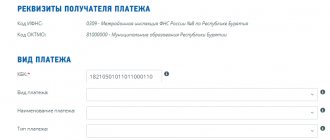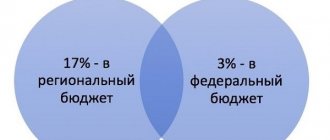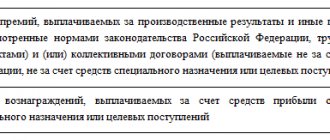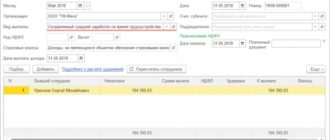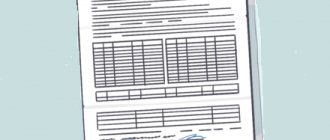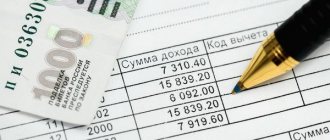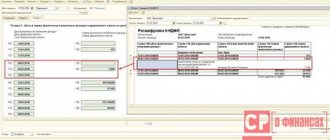Personal income tax (NDFL) has its roots in the history of ancient Rus'. Only then was it called tribute. The prince and his retinue traveled around his estate and collected payments from the population, of course, in kind. But it happened that the people themselves brought tribute to the prince. Later, the income of the population subject to taxation began to be called the poll tax. And then in 1812 a document was issued that introduced a tax on landowner income. But he was too humane, and therefore did not stay long. In accordance with its norms, landowners calculated their income independently without any control from the state.
Personal income tax began to acquire the already familiar features with the publication of the Law “On State Income Tax,” signed by Nicholas II in 1916. It extended to citizens and organizations. Its norms even laid down the foundations of “residency.” However, as time passed, tax rates, taxation procedures and transfers to the budget changed. The next landmark regulatory document in the personal income tax chronicle was the RSFSR Law of December 7, 1991 No. 1998-1 “On personal income tax.” He made significant adjustments, in particular, established the procedure for calculating tax depending on the total amount of payments received by a citizen during the year.
Money as a gift
You can now receive money as a gift without paying taxes not only from close relatives, but also from people of varying degrees of acquaintance. But be careful if you are an official: a gift may be considered a bribe.
You can also accept gifts in kind, if it is not an apartment, a car, shares or shares. If any of the above is not given to you by a close relative, you will have to pay personal income tax.
A money transfer to a card, if it is a gift, is also not subject to tax.
How much income of foreigners is not taxed?
In Art. 215 of the Tax Code lists the income of foreigners that is not subject to personal income tax. These include:
- income of consuls and diplomats, as well as members of their families living with them on the territory of the Russian Federation (only income that is not related to the consular or diplomatic service and received in Russia from local sources is taxed);
- income of technical workers and service personnel of diplomatic missions represented by foreign citizens, as well as members of their families temporarily residing with them in Russia, with the exception of income received from other sources in Russia;
- income of employees of international organizations.
This article applies only to citizens of those countries with which Russia has concluded relevant international treaties establishing a similar procedure for Russians of the same rank.
Income from deposits with a low rate
Personal income tax will have to be paid Tax Code of the Russian Federation Part 2 if the interest rate on a ruble deposit is five points higher than the refinancing rate of the Central Bank of the Russian Federation of the Central Bank - now it is 12.5%. For foreign currency deposits the figure is fixed - 9%.
But you simply won’t find deposits with such a rate. Interest rates on loans and deposits and the structure of loans and deposits by maturity, so you don’t have to worry about taxes.
New history of personal income tax
And finally, Chapter 23, introduced into the Tax Code of the Russian Federation on January 1, 2001, marked a completely new stage in the development of modern taxation: income tax became a tax on personal income, a 13% rate was introduced for all taxpayers and the institution of “residence” was established. And just recently, on November 23, the legal field of personal income tax was adjusted by another document - Federal Law No. 372-FZ. He introduced a second rate of 15%. And now, starting from 2021, two tax rates will come into effect in Russia – 13% and 15%. The procedure for their application will depend on the size of the citizen’s earnings. If the annual income is up to 5 million rubles, you will need to pay 13% personal income tax. And if it exceeds this amount, you will have to pay 13% (650,000 rubles) of 5 million rubles and 15% of the amount exceeding this level to the budget.
Income from the sale of certain types of products
If you grow vegetables and fruits on your plot, sell meat, milk, eggs, you don’t have to pay tax. But only if these conditions are met:
- the total area of the land plot does not exceed Federal Law of July 7, 2003 N 112-FZ “On personal subsidiary plots” 0.5 hectares;
- you do not use hired labor;
- you have a document that confirms the first and second points. It is issued by the relevant local government body, the board of a horticultural, gardening or dacha non-profit association of citizens.
If you sell wild fruits, berries, nuts, and mushrooms collected in the forest, you also don’t have to pay tax.
List of income not subject to personal income tax
The following income is exempt from personal income tax:
1. State benefits, except for payments due to temporary inability to work due to illness or when caring for a sick child. The exceptions are unemployment benefits and maternity benefits.
For more information about how personal income tax and maternity payments relate, read the article “Are maternity payments subject to income tax (personal income tax)?” .
2. Pensions assigned by the Pension Fund of the Russian Federation, including labor pensions, as well as all social additional payments to them.
2.1. Monthly payments at the birth (adoption) of the 1st or 2nd child after 01/01/2018, provided that the average per capita family income does not exceed 1.5 times (from 2021 2 times) the subsistence minimum for the working population established in the region for the 2nd quarter of the year preceding the year of application for payment.
3. Compensation payments.
IMPORTANT! Until 01.01.2020, compensation not subject to personal income tax is listed in clause 3 of Art. 217 Tax Code of the Russian Federation. From 2021, it will no longer be in force, and the payments named in it will be moved to sub-clause. 3 p. 1 art. 217 Tax Code of the Russian Federation. See here for details.
These are, in particular, compensation established at the federal and local levels within the limits of current restrictions:
- with compensation for damage caused by injury;
- free provision of housing, utilities or fuel (or paid in cash equivalent);
- issuance (or payment of the value equivalent) of the due allowance in kind;
- reimbursement of the cost of sports equipment, equipment, sports uniforms and meals provided to athletes and employees of specialized organizations (including judges) during training or participation in competitions;
- payment of severance pay, compensation to company management within the framework of triple monthly earnings (six times for those laid off in the Far North), average monthly earnings before employment;
- death of civil servants or military personnel in the performance of their official duties;
- increasing the professionalism of employees;
- with the use of personal property by employees for official purposes, subject to the availability of documents confirming the economic justification of such expenses;
Which ones exactly, see here.
- performance of work duties, including reimbursement of travel allowances or when moving to another location for work;
- with field allowance, but not more than 700 rubles.
The maximum amount when paying for travel allowances, based on the exemption from personal income tax, is 700 rubles. per day in the Russian Federation and 2,500 rubles. equivalent abroad. Moreover, all justified targeted expenses during a business trip that are documented are exempt from taxation: travel to the destination, airport taxes, costs to the station (airport), luggage transportation, rental housing, telecommunications services, fees for obtaining visas, passports, currency exchange fees . In particular, travel expenses will not be taxed if the actual dates of departure/return associated with a business trip do not significantly deviate from the dates specified in the business trip order. However, if such a deviation is significant, tax will have to be withheld.
Read more about this in the material “Combine a business trip with a vacation, pay personal income tax.”
If documents confirming payment for renting housing were lost, then it is safe not to impose personal income tax only on amounts of 700 rubles per day in Russia and 2,500 rubles per day abroad. A similar procedure has been established for the taxation of payments made to members of the board of directors or any similar executive body of the company in connection with their arrival to hold a meeting of the board of directors or a similar body.
To learn whether it is necessary to tax expenses on documents issued by non-existent legal entities, read the article “The accountant confirmed expenses with documents from a non-existent company. Do I need to withhold personal income tax? .
3.1. Payments to volunteers when they perform their duties free of charge, including rental of housing, travel to the place where their services are provided, food, purchase of personal protective equipment, payment of insurance for VHI for health risks. All within the limits of the amounts applicable for travel allowances specified in the paragraph above.
4. Payment for donated blood, milk and other assistance provided by donors.
5. Alimony payments.
6. Grants in the field of science, culture, education, provided by domestic and foreign organizations, the list of which is approved by the Government of Russia.
6.1. Grants, prizes and premiums received in competitions or competitions organized by non-profit institutions at the expense of grants from the President of the Russian Federation.
6.2. Income in cash or in kind to pay for food (up to 700 rubles in the Russian Federation and 2,500 rubles abroad), accommodation, as well as the cost of travel to the venue of competitions, contests, etc., held by non-profit organizations at the expense of grants from the President of the Russian Federation.
7. Awards (domestic and foreign) for achievements in the field of education, culture, art, technology and science, media according to the government list, as well as awards presented by regional senior officials for similar achievements.
8. One-time payments (including financial assistance, payment in kind) made:
- the employer to the family of a deceased or retired (including in connection with the death of a family member) employee ( for more details, see here );
- from the federal regional budget in the form of targeted assistance to the poor and socially vulnerable segments of the population;
- by the employer at the birth (taking into guardianship, adoption) of a child within 1 year within 50,000 rubles.
Find out how financial assistance to an employee is taxed here .
8.1. Award for assistance to government agencies in preventing and detecting terrorist acts, assistance to the FSB and operatives.
8.2. Charity.
8.3. One-time cash payment to pensioners made in January 2021.
9. Compensation by employers for the cost of vouchers to sanatoriums, dispensaries and other sanatorium-resort institutions (except for tourism) to employees or members of their families. Sources of payments can be funds from the organization itself, budget funds, or money from religious communities or NPOs.
Read more about personal income tax treatment of vouchers provided at work here .
10. Payment by the employer for medical services (including medications) provided to employees or members of their families (from funds that remain at the disposal of the employer after paying income tax, as well as funds from organizations of the disabled, religious and charitable societies). A prerequisite is compliance with the non-cash form of payment or the issuance of cash to the individual taxpayer.
11. Scholarships.
12. Remuneration from government agencies financed from the budget when sending workers abroad.
13. Income from the sale of self-grown crops or livestock products from subsidiary plots. Mandatory conditions are the non-use of hired labor and not exceeding the size of the land plot established for subsidiary plots. To be exempt from taxation, you will need a certificate issued by a local government body (chairman of a horticultural cooperative, etc.) confirming the origin of agricultural products.
13.1. Budget payments for the development of subsidiary farming.
14. Farmers' income from agricultural activities during the first 5 years.
14.1. Grants to farmers for creating a farm, initial equipment and for the development of a livestock farm.
14.2. Subsidies for farmers.
15. Income from the sale of forest products.
16. Income of registered members of family communities among the peoples of the North (small in number) engaged in ethnic activities.
17. Income from the sale of game and furs obtained by hunters.
17.1. Income from the sale of real estate (with certain restrictions established by Article 217.1 of the Tax Code of the Russian Federation and applied since 2016) and movable property owned for more than 3 years. From 01/01/2019, the clause applies to income received from the sale of property used in business activities. This paragraph does not apply to income received from the sale of securities.
17.2. Income from the sale of a part in the authorized capital of the company, shares that the taxpayer owned for over 5 years.
17.3. Income from the sale of waste paper by individuals.
18. Hereditary mass.
18.1. Property received as a gift from individuals, except for real estate, vehicles and securities (shares in the management company).
19. Income to shareholders during revaluation of assets and in other cases.
20. Sports prizes.
20.1. One-time incentive payments from sports non-profit organizations (introduced 07/03/2016).
20.2. Incentive cash and in-kind payments to participants of the 2016 Paralympic Games (introduced on November 30, 2016).
21. Tuition fees.
21.1. Fee for independent assessment of qualifications (introduced in 2017).
22. Purchase of technical equipment for the rehabilitation of disabled people, including payment for guide dogs, as well as for the prevention of disability.
23. Reward for treasure.
25. Interest on government bonds.
26. Charitable assistance to orphans, as well as from low-income families.
28. Any income not exceeding 4,000 rubles. per year in the form:
- gifts from legal entities and individual entrepreneurs;
- prizes at competitions;
- employer's financial assistance;
- reimbursement by the employer for the cost of medications prescribed by the attending physician (receipts are required);
- winnings in marketing campaigns;
- material assistance for disabled people;
- financial assistance provided by an organization carrying out educational activities in basic professional educational programs, students (cadets), graduate students, adjuncts, residents and assistant trainees (from 01/01/2020);
About the need to organize the accounting of such income, read the material “The Ministry of Finance reminded that for personal income tax purposes, gifts must be taken into account regardless of their value .
29. Income of conscripts at military training.
30. Earnings from elections, referendums.
31. Payments to trade union members from paid membership fees.
32. Bond winnings on government loans.
33. Material assistance and gifts to veterans, disabled people of the Second World War and their widows, home front workers, former prisoners of war and prisoners during the Second World War, provided at the expense of:
- budget of the Russian Federation or funds of a foreign state - in full;
- other persons - in the amount of up to 10,000 rubles. in year.
34. Income of families with children in the form of state support.
35. Budgetary compensation for the payment of interest on loans.
36. Payments from the state budget or local budgets for the construction (purchase) of housing.
37. Income from investment for the purchase of housing by participants in the NIS for housing provision for military personnel.
37.1. State assistance for the purchase of a new car as part of an experimental replacement of scrapped vehicles.
37.2. One-time compensation to health workers within the framework of the state program (no more than 1 million rubles).
37.3 The amount of the down payment paid from the federal budget for a loan to purchase a car.
38. Contributions to pension savings.
39. Employer contributions for each employee to the funded labor pension system within the limit of 12,000 rubles. in year.
40. Amounts paid by legal entities (IP) to reimburse interest payments on loan agreements for the construction (purchase) of housing.
For more details, see: “Mortgage interest is not completely exempt from personal income tax .
41. Housing received free of charge from the state by military personnel, as well as freely received land or housing from municipal (state) property.
41.1 Income received by the taxpayer under the renovation program in Moscow.
41.2 Monetary compensation in exchange for a land plot due from state or municipal property, if such compensation is established by law (from 01/01/2020).
42. Compensation for partial payment by parents of preschoolers for kindergarten.
44. Providing food for seasonal workers for field work.
45. Income in the form of payment for travel to the place of study and back to minors.
46. Income in connection with the termination, in whole or in part, of the obligation to pay debt, income in the form of financial benefits, as well as other income in cash and (or) in kind received by taxpayers who suffered from terrorist acts, natural disasters or other emergency circumstances, and (or) individuals who are members of their families in connection with these events.
46.1 Income received as payment for the rental (rent) of residential premises from individuals specified in clause 46, within the limits of the amounts provided to such persons for the purpose of hiring (renting) residential premises from budget funds.
47. Free airtime during elections.
48. Pension savings.
48.1. The borrower's income from the repayment of debt under a loan agreement from insurance compensation.
52. Property transferred for the endowment capital of an NPO, which can be received back by the donor upon dissolution of the endowment capital or cancellation of the donation.
53. One-time payment from pension savings.
54. Urgent payment of pension savings.
55. Payment in kind in the form of emergency assistance provided to tourists.
56–57. Income in preparation for FIFA 2018.
58. Dividends subject to double taxation provisions.
Read about the taxation of dividends in the article “Is personal income tax levied on dividends?” .
59. Support provided by the employer within the limits established by the certificate within the framework of the employment law.
60. Income from the liquidation of a foreign legal entity, provided that the liquidation procedure is completed before 03/01/2019, as well as the taxpayer submits an application with a list of characteristics of the property received.
60.1. Income in the form of securities received by an individual in ownership before December 31, 2019, from a foreign organization of which he is a shareholder, subject to a number of restrictions established by this paragraph.
61. Reimbursed legal expenses.
62. Debts written off in bankruptcy (introduced in 2021).
62.1. Debt recognized as bad and written off if certain requirements are met (introduced in 2021).
63. Income from the sale of property upon declaring bankruptcy (introduced in 2021).
64. Compensation payments to depositors upon acquisition of their right to deposit (introduced from 2021).
64.1. Income generated by citizens of Crimea and Sevastopol as a result of the termination of the taxpayer’s obligations in accordance with the law “On the specifics of repayment...” dated December 30, 2015 No. 422-FZ.
65. Income from restructuring of mortgage debt (introduced in 2016).
65.1. Income received by the taxpayer during the implementation of state support measures for families with children (from income received in 2021).
66. Income from a controlled foreign company, subject to its independent declaration (introduced 02/15/2016).
67. Income from a foreign legal entity not related to the distribution of profit, in the amount of the previously made contribution to it (introduced on February 15, 2016).
68. Bonuses awarded to active buyers (introduced in 2017).
69. Monthly payments to combat veterans (introduced in 2017).
70. Income of individuals (who are not individual entrepreneurs and do not employ hired workers) from care services for persons in need, tutoring, housekeeping, cleaning (introduced in 2017). Applicable in 2018–2019.
71. Reimbursement from the compensation fund for participants in shared construction in the event of bankruptcy of the developer (valid from 01/01/2018).
72. Income of taxpayers for the period from 01/01/2015 to 01/12/2017, from which personal income tax was not withheld by the tax agent, and information about them was submitted to the Federal Tax Service (valid from 12/29/2017). The exceptions are income:
- for the performance of work, services or labor duties;
- in the form of dividends (interest);
- benefits and income in kind, including gifts;
- in the form of prizes and winnings.
73. Income of judges in the form of a lump sum payment for the purchase or construction of housing.
74. Income in cash and in kind received during the period up to and including 31 December 2021 from UEFA.
75. Income in the form of CFC profits taken into account when determining the tax base in 2021 for a taxpayer who is a controlling person of such a controlled foreign company.
76. Income in the form of payments to citizens exposed to radiation (introduced in relation to income received from 2021).
77. Income in cash or in kind received in accordance with the legislative acts of the Russian Federation, acts of the President or the Government, laws or other acts of government bodies of the constituent entities of the Russian Federation in connection with the birth of a child (introduced in relation to income received after 2021).
78. Income received by disabled people or disabled children in accordance with the law of November 24, 1995 No. 181-FZ, as well as the amount of payment for additional days off provided in accordance with Article 262 of the Labor Code of the Russian Federation to persons (parents, guardians, trustees) caring for for disabled children (introduced in relation to income received from 2021).
79. Income received by certain categories of citizens in order to provide them with social support (assistance) in accordance with legislative acts of the Russian Federation, acts of the President or Government, laws or other acts of government bodies of constituent entities of the Russian Federation (introduced in relation to income received from 2021).
80. Annual cash payments to persons awarded the “Honorary Donor of Russia” badge (introduced for income received from 2021).
Compensations paid to participants in renovation programs
Citizens participating in housing restoration or reorganization programs are also exempt from paying income tax. If the cost of the new home is greater than the old one, the difference is not taxed.
EXAMPLE
The Ivanov family is participating in a housing reorganization program. The cost of the old one is 1,350,000 rubles. The new building turned out to be more expensive, the price was 1,410,000 rubles. Benefit in the amount of 60,000 rubles. not taxed.
Profit on percentage
Citizens who receive material benefits are required to pay income tax. What exactly applies to it is listed in Art. 212 of the Tax Code of the Russian Federation. From January 1, 2021, the interest difference received as a result of issuing loans or borrowings is payable.
Income may be taxed at different rates:
- 35;
- 30;
- 13%.
The amount depends on the status of the payer and the actions performed. The declaration is submitted by an individual or organization that is a tax agent.
What he really is
Wages are a form of allowance expressed in a specific amount of money with which a citizen, after receiving them, has the opportunity to purchase various goods and services.
Before receiving a salary, the accounting department is obliged to deduct from the total amount of income certain taxes and contributions determined by the legislation of the Russian Federation. This is usually the responsibility of the organization's chief accountant.
(PN) is levied on any type of income - wages, dividends or other types of profit.
However, the law provides for specific types of income on which this tax is not levied.
Russian legislation determines that a resident of the Russian Federation must pay (PT) in the amount of 13% of the total income.
In the video, what amount is not subject to income tax:
Non-taxable base for personal income tax in 2021
The tax base is reduced by the so-called deductions for children. They are provided by law to parents, guardians and trustees, and adoptive parents. In 2021, the non-taxable personal income tax base is the amount of 1,400 rubles for the first and second children, 3 thousand rubles for the third and subsequent children.
For a parent (adoptive parent) of a disabled child, the tax-free base will be 12 thousand rubles, for a guardian (trustee) - 6 thousand rubles.
Deductions are provided until the child reaches the age of 18. If the child is disabled or is studying full-time – up to 24 years of age.
Winnings from lotteries and online casinos of less than 4 thousand rubles are also not subject to taxation.
Income subject to taxation by an individual independently
Income that is subject to taxation by an individual independently includes the following types of income:
- Property income;
- Income of a person engaged in private practice;
- IP income.
Property income
The property income of an individual subject to taxation includes income in the form of an increase in value upon the sale of property, other assets, upon transfer of property as a contribution to the authorized capital, or rental of property.
When receiving property income in foreign currency, the amount of income is recalculated into tenge using the market rate on the date of the transaction.
Income from the increase in value when selling property on the territory of the Republic of Kazakhstan arises from the sale of dwellings, country houses, garages, land plots, motor vehicles and trailers that have been under ownership for less than a year.
In this case, income from the increase in value is the positive difference between the cost of sales and the cost of acquisition.
Property income arises from the sale of other assets of individual entrepreneurs who apply the SNR for small businesses. In this case, other assets include fixed assets, construction in progress, uninstalled equipment, intangible assets, biological assets, etc.
When selling other assets, the increase is determined for each asset in the form of a positive difference between the sale price and the original cost.
Amount of taxable income = income subject to taxation – adjustments (Article 341) – tax deductions (Article 342)
Income of a person engaged in private practice
Persons engaged in private practice are: private notary, private bailiff, lawyer, professional mediator.
Income for these categories are all types of income received from activities related to the execution of executive documents, notarial, lawyer's activities, the activities of a professional mediator, etc.
Calculation of personal income tax on these incomes is carried out based on the results of each month at a rate of 10%. The calculated tax amount is paid by the 5th day of the next month.
Individual entrepreneur income
Taxable income of an individual entrepreneur on ESD = taxable income of an individual entrepreneur - taxable income of an individual entrepreneur carrying out electronic commerce - adjustments (Article 341) - tax deductions (Article 342)
An individual entrepreneur can reduce taxable income by the amount of income from e-commerce if income from e-commerce, taking into account exchange rate differences, amounts to at least 90% of the individual entrepreneur’s income for the tax period.
Tax reporting and payment
The personal income tax declaration is submitted by March 31 of the year following the reporting year.
Private notaries, private bailiffs, lawyers, professional mediators, individuals who have received property income, other income, who have money in bank accounts in foreign banks, submit a personal income tax declaration. according to form 240.00 “Individual Income Tax Declaration”.
Individual entrepreneurs submit a declaration in Form 220.00 “Individual Income Tax Declaration.”
Payment of personal income tax at the end of the year is made by the taxpayer within 10 calendar days after submitting the Declaration.
Tax deductions
The income of individuals, who are taxed at a personal income tax rate of 13 percent, can be reduced (clause 3 of article 210, clause 1 of article 224 of the Tax Code of the Russian Federation). The reduction is made using so-called tax deductions. There are several groups of such deductions (Articles 218 - 221 of the Tax Code of the Russian Federation). The most common are standard, social and property tax deductions.
Standard tax deductions (Article 218 of the Tax Code of the Russian Federation)
Such deductions can be divided into two groups: deductions for yourself and deductions for children.
The right to deduct for themselves is granted to certain categories of individuals, for example, “Chernobyl survivors”, disabled people of the Second World War, Heroes of the Russian Federation, etc. The amount of such a deduction is 500 rubles. or 3000 rub. per month (clauses 1 and 2, clause 1, article 218 of the Tax Code of the Russian Federation).
Note! If you are entitled to several standard deductions for yourself, for example, you are both a Chernobyl survivor and a Hero of the Russian Federation, you will be provided with the maximum of them. It is impossible to sum up deductions and use them at the same time (paragraph 1, paragraph 2, article 218 of the Tax Code of the Russian Federation).
The standard child tax credit is available to individuals who support children.
Deductions for children range from 1,400 rubles. up to 3000 rub. per month for each child (clause 4, clause 1, article 218 of the Tax Code of the Russian Federation).
Note! Deductions for children are provided until the month in which your income, calculated from the beginning of the calendar year, reaches 280,000 rubles. Starting from the month in which income exceeded 280,000 rubles, the deduction for children is not applied.
Social tax deductions (Article 219 of the Tax Code of the Russian Federation)
Social tax deductions are available when you incur certain social expenses. For example, you pay for education, treatment, or provide charitable assistance.
Social deductions are provided for five types of expenses:
- for charitable purposes and donations. Such a deduction cannot exceed 25 percent of your income for the year (clause 1, clause 1, article 219 of the Tax Code of the Russian Federation);
- for training (clause 2, clause 1, article 219 of the Tax Code of the Russian Federation);
- for treatment (clause 3, clause 1, article 219 of the Tax Code of the Russian Federation);
- for non-state pension provision and voluntary pension insurance (clause 4, clause 1, article 219 of the Tax Code of the Russian Federation);
- for the payment of additional insurance contributions for the funded part of the labor pension (clause 5, clause 1, article 219 of the Tax Code of the Russian Federation).
Social deductions are provided in the amount of expenses actually incurred by you. However, the total amount of deductions cannot exceed RUB 120,000. per year - for expenses on own training, on treatment (except for expensive ones), on non-state pension provision and voluntary pension insurance, on additional insurance contributions for the funded part of the labor pension (paragraph 3, paragraph 3, paragraph 1, paragraph 3, paragraph 2 Article 219 of the Tax Code of the Russian Federation).
The deduction for educational expenses for children, brothers and sisters cannot exceed RUB 50,000. per year for each student (clause 2, clause 1, article 219 of the Tax Code of the Russian Federation).
There are no restrictions on expensive types of treatment; the full amount of actual expenses incurred is accepted for deduction (List, approved by Decree of the Government of the Russian Federation of March 19, 2001 N 201; paragraph 4, paragraph 3, paragraph 1, Article 219 of the Tax Code of the Russian Federation).
